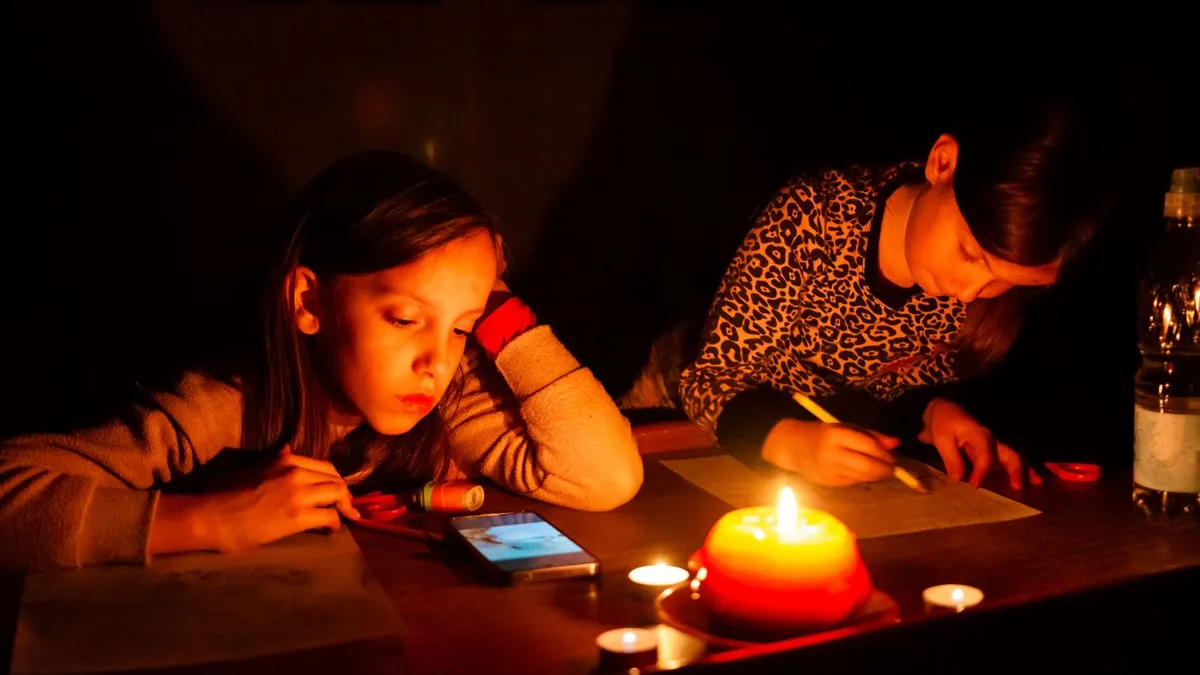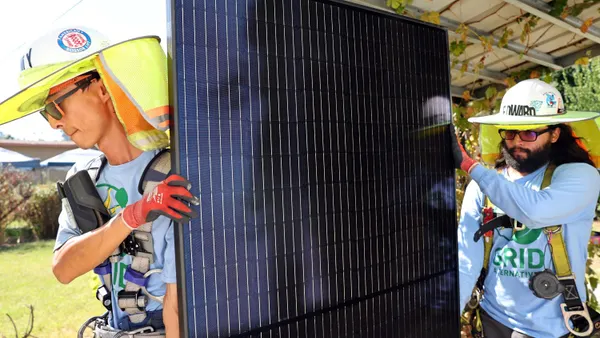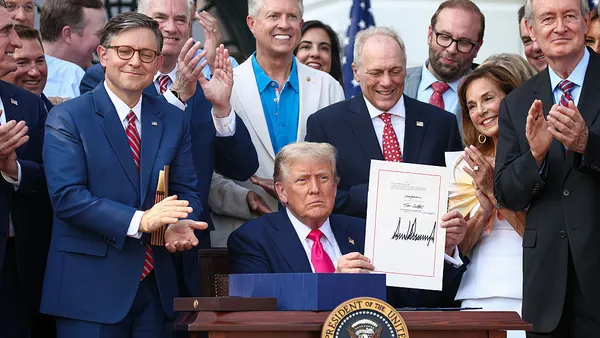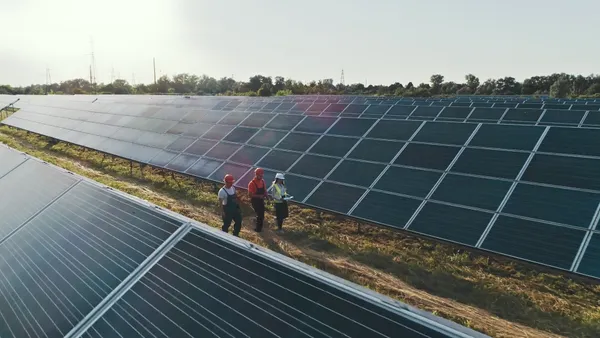Dive Brief:
- After approving legislative cancelation of the West Virginia renewables mandate, Gov. Earl Ray Tomblin (R) vetoed HB 2201, which would have eliminated net energy metering. In issuing the veto, Tomblin encouraged lawmakers to correct the “technical issues” for which he rejected it.
- In Indiana, the General Assembly lower house failed to advance HB 1320, the utility-backed “pro-solar” bill that would have legalized solar leasing but cut solar owners’ remuneration below the retail power rate, added fees, and significantly impacted the solar value proposition.
- Bryan Miller, Co-Chair of The Alliance for Solar Choice (TASC), said solar opponents such as American Electric Power, which backed both bills, would continue to push such laws.
Dive Insight:
Retail rate net metering returns the same rate to solar owners for the electricity their systems send to the grid as they pay for electricity consumption. Because solar owners’ bills are therefore reduced, their grid infrastructure charges are proportionally lower. Some conservative lawmakers, utilities, and fossil fuel interests therefore oppose net metering because it "unfairly" shifts infrastructure costs to non-solar-owners.
The West Virginia bill was aimed at stopping the shift of infrastructure costs to non-solar-owners.
Solar Energy Industries Association President Rhone Resch said the West Virginia proposal would “jeopardize” solar’s future in the state.
The Indiana Energy Association, which represents the state’s 14 utilities, supported HB 1320, according to spokesperson Dave Arland. In addition to establishing solar leasing, it had “important consumer protections, including a disclosure requirement about the details of the lease. And it gives the Indiana Attorney General the authority to deal with bad actors,” he said.
HB 1320 “adds fees and gets rid of any economic viability of customer-owned and rooftop-sited solar,” said TASC Midwest spokesperson Amy Heart.













